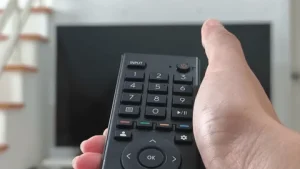Why Is My Smart Hub Not Working?

Introduction Common Causes and Solutions:
Are you encountering troubles with your smart hub not working? Whether it’s a Samsung Smart Hub, BT Smart Hub, or any other brand, facing problems with connectivity can be annoying. Many users experience their smart hub not operational, resulting to trouble in accessing internet services or smart devices. In this article, we will discuss frequent reasons of these issues, such as connectivity failures or software faults, and suggest strategies to remedy them. By identify the fundamental causes of why your smart hub is not connecting, you can rapidly get your devices back online.
Understanding Smart Hub Functionality
Before going into solutions, it’s vital to understand how a smart hub performs. A smart hub acts as the central control point for all your linked devices. It lets you to manage and monitor smart home devices, including lighting, thermostats, and security systems. A functional smart hub provides the seamless operation that enables for the automation of various functions, such as turning on your lights or regulating your temperature remotely. However, when your smart hub goes offline, these operations become impossible to accomplish. If your smart hub is not connecting, it’s crucial to troubleshoot and resolve the issue fast.
The issue of a smart hub not operating might occasionally come from simple user errors. For instance, not configuring the hub with your Wi-Fi network correctly could be the problem. Alternatively, power outages or device faults can potentially cause your hub to fail to connect to the network. A common mistake is overlooking minor settings tweaks, but with the appropriate troubleshooting methods, it’s easy to rectify. The objective is to know exactly where to check and identify any disturbances that can prohibit your Samsung Smart Hub, BT Smart Hub, or other models from fulfilling its intended functions.
Common Causes for a Smart Hub Not Working
Several circumstances might cause a smart hub to cease working, and understanding these issues can help you fix them. One of the most typical problems is network connectivity. When your smart hub is offline, it could be due to troubles with your internet connection or Wi-Fi router. In the case of a Samsung Smart Hub not working, the fault could be with the network settings or firmware, leading to a complete failure of the device. Sometimes, the smart hub is simply not operational owing to a brief glitch or issue with the device itself. Troubleshooting can often help in restoring functioning.
Network-related issues are some of the most typical explanations behind a smart hub not connecting. These include problems such as weak Wi-Fi signals, inconsistent internet, or router faults. However, the cause might not necessarily be tied to external causes. Internal issues, such corrupted system files, obsolete firmware, or a device malfunction, could also induce the problem. In certain circumstances, the issue can entail a mix of factors—like both a bad Wi-Fi connection and outdated software—leading to your hub falling down. By systematically exploring each probable source, you raise the odds of solving the problem efficiently.
How to Fix a Samsung Smart Hub That’s Not Working?
If your Samsung Smart Hub is not working on smart tv, the first step is to verify your internet connection. A poor Wi-Fi signal or an unreliable internet connection may prevent your hub from connecting to the network. You should also verify that your smart TV or other linked gadgets are functioning appropriately. If your gadgets are operating on smart TV but the hub isn’t, restarting your hub may be the issue. A fast reset of the Samsung Smart Hub might restore its functioning and let it rejoin to the network.
In many circumstances, your Samsung working on smart tv can be traced back to a simple connection issue. If the reset doesn’t cure the problem, try rebooting your router. Sometimes, the router itself can be the root of the difficulty, particularly if there are several devices connected to the network. It’s always a good idea to disconnect devices briefly and verify if the hub reconnects to the network. If the issue persists, you might want to consider resetting the hub totally. Resetting a device to factory settings clears all configurations and can often address deep-seated software issues, enabling you to start over.
If this doesn’t cure the issue, check for firmware updates. Outdated software can often cause compatibility issues with other devices, resulting in your Samsung working on smart tv. By ensuring that your firmware is up-to-date, you may avoid many frequent connectivity issues that plague the smart hub not working. Firmware upgrades are aimed to correct issues, increase security, and boost overall performance. Always make sure your Samsung Smart Hub is running the latest version of its software to ensure optimal performance.
Troubleshooting BT Smart Hub Connectivity Issues
When a BT Smart Hub is not working, it frequently involves a few critical troubleshooting procedures. The first thing to do is check for any service outages in your region. Sometimes, your hub may be unavailable because of issues on the service provider’s end. If there are no outages, examine the cords connecting your hub to the internet. Loose or disconnected wires might easily cause the smart hub to stop operating. Once you’ve ensured the cables are properly attached, restart the BT Smart Hub. This easy procedure can often address issues with the hub not connecting.
If the cords are fine and there’s no service outage, you can also try to access your BT Smart Hub settings. Make sure the Wi-Fi settings are appropriately configured, and ensure the hub is linked to the correct network. Issues like password mismatches or wrong network settings can cause the smart hub not connecting or being offline. It’s also vital to check the gadget itself for any visible indicators of malfunction, such overheating or physical damage.
Additionally, keep in mind that network congestion could cause a BT Smart Hub to suffer with connectivity. Too many devices linked to the network can exceed the hub’s capability. This is especially essential if your household has many smart gadgets in operation simultaneously. To remedy this, consider lowering the number of connected devices or upgrading to a more powerful hub.
The Role of Firmware Updates in Smart Hub Performance
Firmware updates play a key role in the functionality of your smart hub. Outdated firmware can lead to many issues, including slow performance, connectivity problems, and, in extreme situations, the hub not operating at all. If you notice that your smart hub is not working, one of the first things to check is whether your firmware is up-to-date. Many smart hubs, like those from Samsung and BT, will inform you when a software update is ready.
For example, when a Samsung Smart Hub is not operating, a firmware update can be all that’s needed to restore functionality. Similarly, a BT Smart Hub not working may stop functioning owing to a fault that a simple firmware update can fix. Regularly updating the firmware ensures that your hub is equipped with the latest security updates, bug fixes, and feature improvements. Even if you’re not experiencing any problems, keeping your firmware updated prevents future issues from cropping up.
Updating your firmware is quite easy and can be done through the hub’s settings menu. Be sure to follow the on-screen directions attentively. A successful firmware upgrade will frequently restore the functioning of your smart hub and address any faults that may have caused it to go offline. Some hubs, particularly some BT Smart Hub models, may provide an automated update feature, so make sure it’s enabled for convenience.
Resetting Your Smart Hub to Restore Connection
If your smart hub is not connecting or is offline despite troubleshooting, it may be time to do a reset. A factory reset might help eliminate software issues and return your smart hub to its normal settings. This will delete all personalized settings, so be careful to back up any crucial variables beforehand.

To reset a Samsung Smart Hub or BT Smart Hub, press the reset button (typically located at the back of the device) and hold it for several seconds. Once reset, the hub will return to its factory settings, and you will need to set it up anew from scratch. While this is a more extreme method, it typically addresses recurring issues of the smart hub not operating.
While the factory reset is an effective technique to restore functionality, it may also be a time-consuming operation, especially if you have personalized your hub’s settings. Make sure you have the relevant information, such your Wi-Fi credentials, before proceeding with the reset. After resetting, the hub will need to rejoin to your network, which could take several minutes.
Checking Wi-Fi and Network Settings
A smart hub’s functionality depends primarily on a reliable and powerful Wi-Fi connection. If your smart hub is not connecting, check to determine if your Wi-Fi network is working correctly. Often, factors such as weak Wi-Fi connections or network congestion can cause your smart hub to go offline. If your Wi-Fi is working on smart TV or other devices but the hub isn’t responding, try relocating the hub closer to your router. This can assist reduce any signal interference.
Additionally, check sure that the network settings on your hub are established appropriately. A common issue is entering the wrong Wi-Fi password or utilizing an unsupported Wi-Fi network type. By double-checking these settings, you can avoid numerous connectivity issues. You should also verify whether your router is working at an optimal frequency. Sometimes, moving to a less busy Wi-Fi channel or band will substantially improve connection stability.
Wi-Fi Interference and How It Affects Your Smart Hub?
Wi-Fi interference is one of the most prevalent reasons for a smart hub not working. Interference can occur from various sources, including other electronic devices, thick walls, or even your neighbors’ Wi-Fi networks. If your Samsung Smart Hub or BT Smart Hub is not connecting to the internet, consider relocating your hub or changing the Wi-Fi channel on your router to prevent interference.
Also, confirm that your Wi-Fi network operates on a frequency band that is compatible with your smart hub. Most current hubs perform better on the 5 GHz spectrum, which delivers quicker speeds and less interference than the 2.4 GHz band. If your smart hub supports dual-band Wi-Fi, ensuring it’s linked to the 5 GHz band can considerably increase its performance, particularly in houses with many smart gadgets.
When to Contact Support for Help?
If none of the troubleshooting techniques resolve your smart hub’s issues, it may be necessary to call out to customer assistance. Whether you’re dealing with a Samsung Smart Hub or a BT Smart Hub, contacting the manufacturer’s support team can assist you with more particular answers. They may be able to assist you detect and fix any hardware-related issues or offer repair or replacement choices if necessary.
Before reaching out, be sure to have your device’s serial number and details regarding the situation handy. This will help the support team diagnose the issue more effectively. If your hub is still under warranty, contacting assistance early can help you to address the problem without incurring further fees.
Preventing Future Issues with Your Smart Hub
Once you’ve successfully mended your smart hub and restored its functioning, there are steps you can do to prevent future failures. Regularly check for firmware upgrades and execute occasional reboots to keep your smart hub working smoothly. Also, confirm that your network is stable and has sufficient coverage for all connected devices. By maintaining your smart hub’s performance, you can prevent confronting the frustration of it going offline.
Regular maintenance of your hub, including monitoring for issues such as network congestion, outdated software, and other common problems, will help guarantee that your smart hub continues to operate at its best. Proactively maintaining your smart home network also means you’ll spend less time troubleshooting, allowing you to enjoy the flawless connectivity you rely on.
Conclusion:
A smart hub not working can be an unpleasant experience, but with the correct troubleshooting procedures, you can frequently address the issue yourself. Whether you have a Samsung Smart Hub, BT Smart Hub, or any other device, understanding common causes and solutions will help you restore connectivity fast. From reviewing network settings to executing firmware updates or factory resets, each step brings you closer to putting your smart hub back online. By taking proactive actions, such as keeping your firmware updated and ensuring a reliable Wi-Fi connection, you may enjoy smooth connectivity with your smart devices for years to come.
Frequently Asked Questions(FAQs):

1. Why is my smart hub not working all of a sudden?
Your smart hub might not be functional due to inadequate Wi-Fi, outdated firmware, or power disruptions. Always start by testing your internet connection and restart the device. If the problem continues, update your smart hub’s software and check for service interruptions.
2. How can I solve a smart hub not connecting to Wi-Fi?
If your smart hub is not connecting, verify your Wi-Fi credentials, move the hub closer to the router, and restart both devices. This approach works well for Samsung Smart Hub and BT Smart Hub users alike.
3. What should I do if my Samsung Smart Hub is not operational?
Try resetting your Samsung Smart Hub, checking for firmware upgrades, and confirming your smart TV is linked to the same network. If these instructions fail, attempt a factory reset.
4. Can a weak signal cause my smart hub to go offline?
Yes, signal interference or weak Wi-Fi can easily result in your smart hub going offline. Try adjusting your router’s channel or installing a Wi-Fi extender to boost coverage.
5. Why does my BT Smart Hub keep disconnecting?
A BT Smart Hub may disconnect due to firmware issues, too many connected devices, or obsolete settings. Reboot the hub, refresh the firmware, and limit device connections to stabilize performance.
6. Is it usual for a smart hub not to work after a power outage?
Yes, an unexpected power outage can damage your smart hub’s connectivity. Restart the hub, check power cables, and reestablish the Wi-Fi connection to solve it.
7. How can I know whether my smart hub is working on smart TV?
If your smart hub is working on smart tv, you should notice associated services load properly. If not, examine the TV’s network settings and try reconnecting the hub manually.
8. Do I need to reset my smart hub if it’s not responding?
If your smart hub is unresponsive, a soft reset typically works. If your smart hub working on smart tv, attempt a factory reset but remember it will delete all custom settings.
9. What causes a smart hub to be unresponsive after an update?
Sometimes, a new update may conflict with existing settings. If your smart hub working on smart tv after an update, reset the device or reload the firmware from official support.
10. Can outdated firmware cause my smart hub to stop working?
Yes, outdated firmware is a common reason for you are working on smart tv. Always check your device has the latest updates to avoid performance issues.
